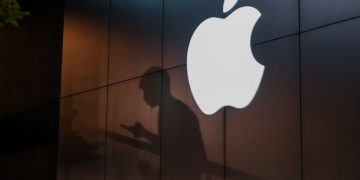In a move that has stirred considerable debate about information neutrality on the internet, Republican lawmakers have launched an investigation into Wikipedia, the world’s largest online encyclopedia, amid allegations of organized bias against conservative viewpoints. The inquiry signals increasing concerns among conservatives about the impartiality of widely used digital platforms and their influence on public opinion.
Allegations of Systematic Bias
The investigation stems from growing complaints by Republican politicians, activists, and supporters who argue that Wikipedia’s editorial processes have been manipulated to present conservative topics, figures, and policies in a disproportionately negative light. They contend that certain Wikipedia pages—particularly those involving prominent Republican leaders or conservative ideologies—have been subject to coordinated editing efforts aimed at shaping narratives unfavorable to the right.

According to these critics, what may appear as isolated edits on Wikipedia is actually part of a broader pattern of “organized bias.” They allege that groups of editors, aligned with progressive political views, systematically edit content, remove conservative perspectives, or emphasize negative aspects of Republican figures while downplaying or omitting positive information. The claim is that this practice undermines the platform’s stated commitment to neutrality and distorts the information available to the public.
One Republican lawmaker described the situation as a serious threat to fair public discourse. “When one of the world’s primary sources of information becomes a battleground for political bias, it compromises the democratic process itself,” the lawmaker said. “We need to understand whether there is a coordinated effort to rewrite history and influence public opinion under the guise of ‘neutrality.’”
The Importance of Wikipedia
Wikipedia is an influential resource with millions of daily visitors who rely on it for information on a vast array of topics, from history and politics to science and culture. Its open-editing model allows virtually anyone with internet access to edit or create entries, making it a unique example of crowd-sourced knowledge.
This openness has been both a strength and a vulnerability. On the one hand, it allows for rapid updates and diverse contributions, often resulting in comprehensive and up-to-date articles. On the other, it can leave the platform susceptible to manipulation by users with political or ideological agendas. The concern among Republicans is that this vulnerability has been exploited in a way that systematically disadvantages their side of the political spectrum.
Wikipedia’s Editorial Process and Defense
Wikipedia’s editorial framework relies heavily on a community of volunteers who monitor, edit, and debate content to ensure accuracy, neutrality, and verifiability. The platform’s guidelines emphasize citing reliable sources and maintaining a neutral point of view, but enforcing these principles can be challenging given the scale and openness of the site.
Supporters of Wikipedia maintain that the platform’s collaborative nature inherently checks against bias because any one editor’s changes are subject to review and possible reversal by others. They argue that the diversity of contributors from various backgrounds helps maintain balance and that the system has safeguards to prevent any one group from dominating content.
Critics of the Republican allegations contend that claims of bias often stem from dissatisfaction with content that factually reflects controversies or criticisms surrounding certain political figures or policies. They argue that Wikipedia articles are based on verifiable information rather than political leanings, and that any perceived bias is the result of facts rather than manipulation.

The Scope of the Investigation
The Republican-led investigation intends to examine whether there is evidence of coordinated editing campaigns—sometimes referred to as “edit wars”—where groups of editors repeatedly change content in a way that reflects partisan bias. Investigators will also look into the transparency of Wikipedia’s editorial policies and whether there is sufficient accountability in how edits are reviewed and disputes resolved.
One area of focus will be the identification of so-called “sockpuppet” accounts—multiple user profiles controlled by the same person or group—to covertly influence content. The investigation may explore whether such accounts are used systematically to push a particular political agenda, especially on politically sensitive pages.
Furthermore, the inquiry could explore demands for greater transparency regarding Wikipedia editors, including revealing identities or affiliations of frequent contributors to politically charged topics. Proponents argue that understanding the background of editors could help assess potential conflicts of interest.
Broader Implications for Digital Information Platforms
The investigation into Wikipedia comes amid a broader national and global conversation about the influence and responsibility of digital platforms in shaping public discourse. Social media giants, search engines, and online encyclopedias alike face scrutiny over content moderation, censorship, and algorithmic biases.
Critics across the political spectrum have raised concerns about unfair treatment or misinformation on various platforms, underscoring the complexity of balancing free expression with factual accuracy. Wikipedia’s unique position as an open-source encyclopedia places it at the center of debates about how to preserve neutrality in an environment open to millions of contributors.
The Republican investigation highlights the challenges of ensuring unbiased access to knowledge in the digital age, where information is increasingly mediated through platforms with varying levels of transparency and oversight.
Reactions and Next Steps
The announcement of the investigation has elicited mixed reactions. Supporters applaud the effort to hold Wikipedia accountable and to ensure fairness for conservative viewpoints. They view it as a necessary step to protect information integrity and combat perceived liberal dominance in online spaces.
Meanwhile, defenders of Wikipedia caution against politicizing the platform, warning that an overly aggressive inquiry could undermine the volunteer-driven editorial process that has made Wikipedia a valuable educational tool. They emphasize the need for balanced assessments that recognize the complexity of managing a global, crowd-sourced encyclopedia.
As the investigation proceeds, it remains to be seen what findings will emerge and whether they will lead to changes in Wikipedia’s policies or operations. The case also raises larger questions about how society can protect the neutrality of information in a politically polarized environment and how digital platforms can best serve the public interest.
For now, Wikipedia continues to be a crucial, if contested, source of knowledge — and the ongoing debate underscores just how vital and vulnerable open access to information has become in the 21st century.











